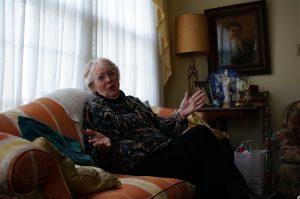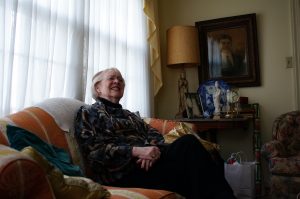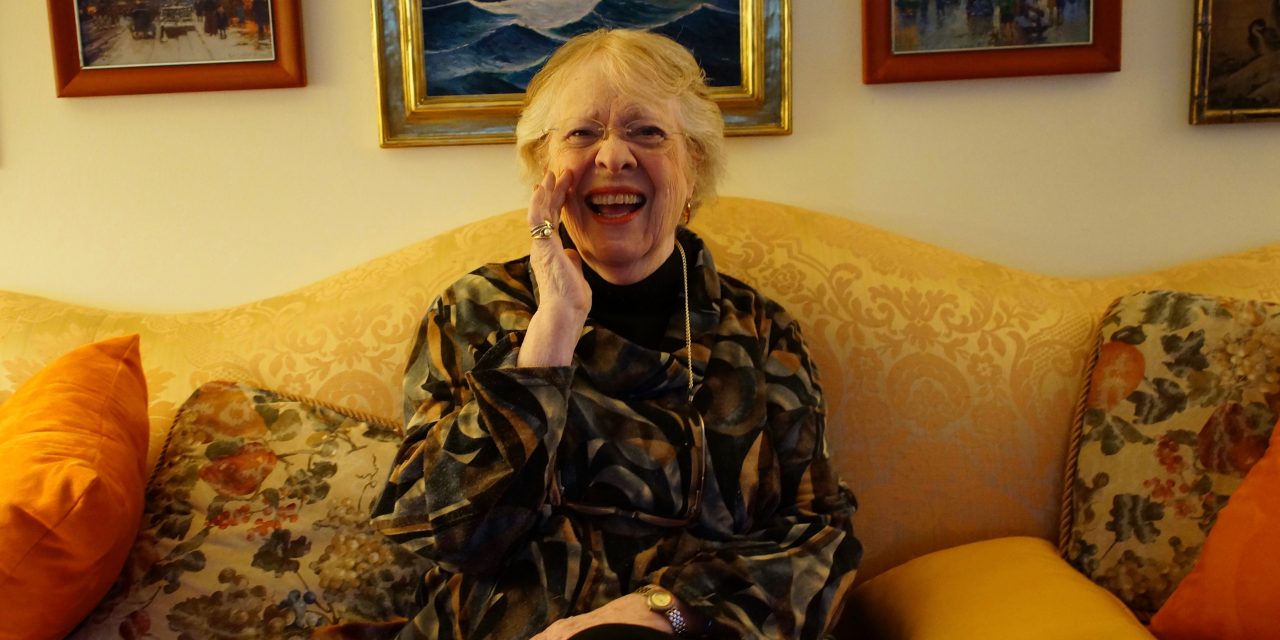This week’s Humans of Chapelboro features Dr. Bobbie Lubker, a retired professor of Education and Public Health at the University of North Carolina at Chapel Hill. Dr. Lubker has spent her life so far working in speech pathology, public health and education, and welcoming international scholars into her home. Read part one of her story here.
“My father was a rotarian at the Rotary Club, which has international scholarships that are as highly valued by some as Rhodes Scholars. These young people from all over the world will come into a community and live with families. So my dad came home one day and said to my mom and me, I’ve invited a French girl to live with us. I was in high school and she was probably in her early twenties, and she kept in touch with my family for years and years. Later on [my husband and I] opened our home, first for Rotary scholars. We have hosted young folks from 24 countries. We don’t even count it unless they stay 3 days. They’ve stayed as long as 6 months. The expectation is that they don’t set fire to the house, and that they probably don’t smoke. I had an email today from our Rotary scholar from the Netherlands wishing my husband a happy birthday tomorrow. They used to say, wow, you’re so nice to us. Well, we’re going to go visit them! And we do and we have and we will. This summer a young man from the Netherlands house-sat for us. The year before I went into graduate school, I decided that I wanted to do what the French girl had done with us. I took off on a studentship and went to France and lived with a French family. It was life-changing. It was so life changing for me in so many positive ways.”

“I went to live with a French family in Calais knowing nothing. I could say ‘oui.’ And you know who taught me? The children. They would take me around, here I was a young, early 20’s adult, they would take me and point out all these nouns. My favorite was ‘sac de couchage’. That means ‘sleeping bag.’ One day—this was long after [WWII] was over—we met the nanny for the children of a physician in town. Their mother called and asked if the girl could join our group, because she was our age. The girl didn’t say where she was from for a long time, but she clearly had an accent. We had two Jewish girls in our group. I said, just point blank, where are you from? And the tears came to her eyes and she said, ‘I’m German, and I am so lonely.’ There she was in France, which had been overrun by the Germans. I hooked an arm in with her, and one of the Jewish girls hooked another arm in. Again, it came down to relationships.”

“When I was 15, my mother and dad had built a new house. It was on a big, 6 acre lot. My dad wanted chickens, so he built a chicken coop. This was out in the edge of the little town, and nobody cared if he had chickens. They probably wouldn’t have wanted him to have bears, but chickens was okay. One morning on the radio, the local guy—the Ron Stutts—said, I have an announcement: somebody ordered baby chickens and they’re at the post office and they’ve been there for 3 days, and anybody who will come pick them up can have them. So I got home from school that afternoon and my mother was standing at the back door. She said, do you know what your father did? I said, yes ma’am, he went to get those chickens. She said yes, and you need to know about this. Our house had a circular driveway and my room was over the garage. He had put the chickens in a box under my room and summer was coming. Mother said, it’s not going to smell very good before long. There were two dozen baby chickens in this box. They began to grow and smell, too.

“I said, “Daddy, the chickens are getting bad.” “Well, don’t bother me about them, I’ll decide what do with them,” he said. “Why don’t you put them with the other chickens down in the chicken yard?” “Well, I may decide to do an experiment and keep them separate.” So, I came home another day and he had put them in 2 separate boxes. I mentioned them again, and he said, “now don’t bother me about the chickens.” Mother kinda gave me the high sign-be quiet. So I got up the next morning, and he kept a bottle of water in the refrigerator. I put in his shoe a note that said “either the chickens go or I go.” And in his water bottle i put a little note that said “down with poultry.” And on the back screen I wrote another note, and it said “those chickens are in the garage. Science proves that chicken poop etches car paint.” I heard him laughing, and that night when I got home, the chickens were gone. He had put them down with the other chickens where they belonged anyway.”
Photos taken by Aleta Donald. Peruse the entire Humans of Chapelboro series here.



Comments on Chapelboro are moderated according to our Community Guidelines